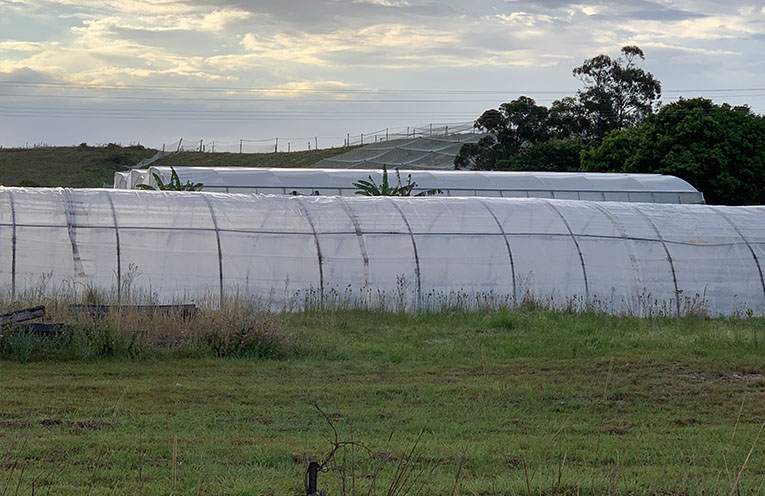
COFFS Harbour City Council intends to hit local growers in the hip pocket by charging them for the use of Council’s recycled water, following widespread water quality non-compliance by agricultural farmers in the area.
 Advertise with News of The Area today.
Advertise with News of The Area today.It’s worth it for your business.
Message us.
Phone us – (02) 4981 8882.
Email us – media@newsofthearea.com.au
The user pays model, to be introduced from 1 January, 2021 will see farmers charged for the Council service, which is currently free.
The recommended charges will see a customer who does not exceed their recycled water allocation incur a Recycled Consumption Charge of $85 per hectare per month.
Council currently treats sewerage and produces recycled water at three facilities, including Coffs Harbour Water Reclamation Plant, Moonee Water Reclamation Plant, and Woolgoolga Water Reclamation Plant.
The recycled water is pumped via a network of pipelines to customers for use in both municipal and agricultural applications.
Demand for recycled water has steadily increased since Council began the supply in the late 1990s and Council now services 59 customers with recycled water, including 34 agricultural customers, fifteen non-agricultural customers and ten Council facilities.
Earlier this year, Council staff conducted an extensive audit program which revealed a significant level of non-compliance by existing recycled water users.
None of the 34 agricultural customers were fully compliant with the conditions of their Recycled Water Supply Agreements.
Typical non-compliance included users exceeding allocation or usage not being measured/recorded, a lack of onsite storage or controls to prevent recycled water entering rivers/creeks, and a lack of workplace health and safety controls including appropriate signage, staff training and inductions, cross contamination prevention and record keeping.
“At the more severe end of the audit finding, some occurrences were identified where users had allowed leaks to continue unabated and without repair, or valves were allowed to remain open which resulted in large quantities of recycled water being allowed to enter the natural environment,” a Council report on the issue stated.
Studies recently completed by Southern Cross University identified that sub-catchments of Double Crossing Creek contained nitrate levels significantly higher than the Australian and New Zealand Environment and Conservation Council Guidelines for Fresh and Marine Water Quality.
Cr Sally Townley spoke in support of the new charges at Council’s recent ordinary meeting on Thursday, 8 October.
“We’ve got some massive problems of non-compliance; massive problems of environmental pollution,” Cr Townley said.
“We are giving it to them for free, it’s being abused, let’s get money for it and let’s set up a contractual relationship so that we can ask for some behaviour modification of the user.
“It takes a tiny step forward to us having a more formalised agreement with these growers so that hopefully we can require them as conditions of their licence to do more testing, we can require them to do certain runoff controls.”
Cr Paul Amos spoke against the introduction of the new fee and questioned the liability of Council in supplying water that it couldn’t endorse.
“Some of the problem is they’re (growers) getting water loaded with nitrogen from the Council,” Cr Amos said.
“At this stage I don’t think that we should be charging for a product that we cannot really endorse.
“If we start selling water to people that are producing food that is not up to (food grade) standards and something goes wrong we are in big trouble because we have been charging for that.”
Cr Amos said the new fee would not cure Hearnes Lakes of its current pollution problems.
“This is not achieving anything, if we’re looking at returning Hearnes Lakes back to health, it’s not doing it,” he stressed.
“What we are doing is putting a little less water that is polluted into Hearnes Lake, but chances are there is still going to be pollution going into that lake.”
Council’s general manager Steve McGrath agreed at the recent meeting that the new fee would not completely fix the water quality in Hearnes Lake.
“It will not fix it in its entirety, it is a first step towards addressing some of the issues that have been found there recently,” Mr McGrath said.
“There is a lot more work to be done, this is just part of the equation to take a step towards improving the situation and outcomes.”
Cr George Cecato supported the new fee and labelled the growers “naughty boys and girls”.
“Yes, we do have a problem, we have heard it from Southern Cross University, we have heard it from a few briefings that we have had,” he said.
“On inspecting those farms, every one of those farms were breaching the use of that water.
“I think it’s time that we send a little bit of a message to our agricultural businesses.”
Cr John Arkan said Council needed to undertake “correct procedures” to look after its recycled water.
“This resource is something that we must manage, we as a Council established it, we offered it to the people, it’s been taken up, yes there are some problems with it,” Cr Arkan said.
“The water quality is of good quality at the moment that we are supplying, but something is going wrong with it when it gets used.”
Cr Arkan said Council needed to make growers aware that this resource was “not to be wasted”.
“Get your act together otherwise there might be some other procedures that we put in place,” Cr Arkan said.
“We just went through a massive drought, it’s a good resource, it just needs to be managed efficiently.”
After more than one hour of debate, councillors resolved to note the intention to introduce a new Recycled Water Access and Licencing Charge and Recycled Water Consumption Charges effective from 1 January, 2021.
Note the intention to increase the Recycled Water Fees and Charges from 1 January, with the Recycled Water Consumption Charge increasing from zero cents to twenty cents per kilolitre, and a Recycled Water Consumption Charge of $2 per kilolitre for any usage in excess of the allocated recycled water volume for each property.
Non-commercial/non-rateable properties will not be charged the new fee up to their allocated recycled water usage amount.
Council intends to increase the Recycled Water Consumption Charge progressively over the following three years.
The new fees and charges will be placed on public exhibition for 28 days, and Council will receive a further report on the matter at the end of the public submission period.
The recommendation was carried four votes to two with Cr Michael Adendorff, Cr George Cecato, Cr Denise Knight and Cr Sally Townley voting for the recommendation, and Cr Paul Amos and Cr John Arkan voting against.
By Emma DARBIN
